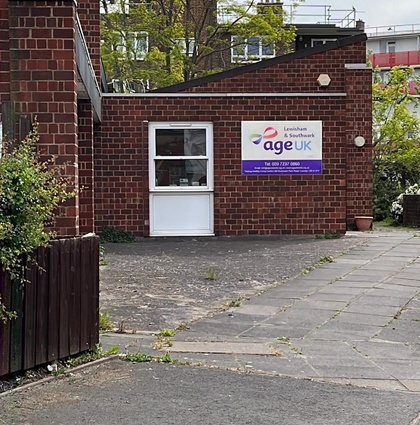

Between March and December 2021, Social Life collaborated with Age UK Lewisham and Southwark on a participatory action research project. The Citizen Research Community built local research capacity by training and mentoring a group of seniors and carers. Olimpia Mosteanu describes the project and what it found.
The research focused on digital exclusion, revealing how emotional reactions play a key role in the way that seniors engage with digital technology. Feelings of anxiety, of losing face, of inadequacy, lacking confidence and the fear of scams make people reluctatant to use digital devices and digital media even when many local services moved online during the COVID-19 pandemic.
The project team worked with a small number of local residents and carers interested in social research, who were motivated to learn research skills to identify and address local issues that mattered to them and their local communities. Social Life offered training on research methods and support to the residents and carers involved in the project.
The researchers shaped the research design, came up with research questions based on their experiences of the local area, identified the appropriate methods to answer them and co-designed the research instruments. The issue of digital exclusion among older people was chosen as the focus of research. In-depth interviews, group discussions and auto-ethnography were the main research methods.
The researchers enquired into seniors’ experiences and feelings about using the internet and digital devices and what would make their experiences using them easier. Researchers relied on their shared experiences and developed good rapport with participants, facilitating new insights into digital exclusion among older people. They were able to have conversations that may have been difficult otherwise. Trust and the power of shared lived experiences allowed the researchers to capture voices and thoughts that might have been silenced if a more traditional research design had been used.
The most important finding that came out of the research was the emotional dimension of digital exclusion. Studies on digital exclusion have rarely focused on the emotional landscape that underpins digital engagement among older people.
The research team found out that emotions play a role in how seniors engage with digital technology. Digital exclusion is not only caused by a lack of knowledge or skills and affordability issues. The research showed that it can also be caused by feelings of anxiety, fears of feeling inadequate, lacking the confidence to use devices and the internet, or the fear of losing face in front of close ones when devices fail to function properly.
“[it’s] disempowering, you feel like you are five again…"
Other emotions, such as the resentment caused by not being able to do things by oneself and fear of online scams also played an important role in seniors’ engagement with digital devices and online platforms. These make people reluctatant to use digital devices and digital media even when many local services moved online during the COVID-19 pandemic.
Another important finding was that there is a need for websites, devices and applications to be co-designed with senior users. We learned that apps need to take better account of the physical barriers experienced by seniors (for instance, less nimble fingers can make small screens difficult to use). The research also showed that designers of websites or devices should not assume that their language translates easily to all demographics (for example, the phrase “smart devices” was challenged by some of the research participants).
The impact of the COVID-19 pandemic on social research has been widely recognized during the past couple of years. However, less has been written about its impact on collaborative and co-designed research approaches. The work we carried out alongside Southwark seniors and carers highlighted some of the challenges and opportunities of participatory action research during those difficult times.
The work challenged more traditional research models by putting co-learning and sharing expertise at the centre of the research process. We learned a great deal about how difficult it can be, at times, for a research team to share power and to co-produce the research process from start to finish. It highlighted the need for open conversations about the power inscribed in research roles and taken-for-granted research processes. It prompted a useful dialogue about who gets to be called ‘professional’ researcher/carer and who gets to be assigned the role of ‘community’ or ‘non-professional’ researcher/carer.
The project partners were keen to ensure that the research did not extract knowledge from local people and their communities. The research relied on local resources, but instead of draining expertise it focused on supporting seniors and carers to develop skills and strengthen their social networks. The project leveraged lived experiences to make action research into a tool for local change.
We are working to preserve the legacy of the project in Southwark by building local research capacity and by facilitating a dialogue between researchers and local decision makers. This process has showed us that traditional research protocols and ethical guidelines may make it difficult to value different types of expertise, knowledge and ways of listening to local communities.
Through our future work, we hope to be able to rethink some of these protocols and develop participatory research approaches that resonate more fully with local places and the people who call them home.
Resources
Betts, Lucy R., Rowena Hill, and Sarah E. Gardner. "“There’s not enough knowledge out there”: Examining older adults’ perceptions of digital technology use and digital inclusion classes." Journal of Applied Gerontology 38.8 (2019): 1147-1166
National Centre for Research Methods. COVID-19 resource collection https://www.ncrm.ac.uk/resources/covid.php
Citizen Research Community. AGE UK Lewisham and Southwark. https://www.ageuk.org.uk/lewishamandsouthwark/services/citizen-research-community/
